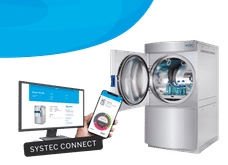South Korea poised to become a major pharmaceutical industry player?
Despite the ongoing risks and costs of drug development, as well as a continuing of a general 'low ebb' in the industry, new players are using partnering tactics to build a presence in the global pharmaceutical market, most notably South Korea.
Like many other emerging pharmaceutical sectors in Asia, the South Korean pharmaceutical industry has concentrated most of its efforts in generics. However, companies have been attempting to move into the area of innovative R&D, encouraged by government support.
"Despite the efforts to become more innovative the South Korean pharmaceutical industry as a whole is still perceived as having certain weaknesses," explained Chiltern International's Dr Faiz Kermani. "For example, whilst it has been described as being competitive with its counterparts in the major industrialised countries in terms of chemical synthesising technologies, it is considered less competitive in drug screening, safety evaluation, clinical development and marketing. South Korean companies have consequently found partnering to be an ideal way in which to become more involved in R&D."
The country currently has around 79 local pharmaceutical companies and 86 research laboratories. R&D spending as a proportion of sales is between 4% and 6% and R&D personnel represent nearly 12% of the total workforce. In 2002, domestic companies were involved in 90 research projects, with most of these falling into the cancer, anti-infectives, metabolic diseases and immunology categories.
"Despite running these projects, when surveyed, 97% of local companies viewed partnerships with global organisations as being of benefit to their commercial objectives," added Dr Kermani.
Partnering is not the only notable development in South Korea. Although most of outh Korea's companies are involved in the manufacture of generics, certain companies have invested in R&D for novel drugs and some have achieved worthwhile success.
In 1999, SK Chemicals launched Sunpla, a third generation platinum complex anticancer drug, onto the local market. The launch of Sunpla was considered proof that the domestic industry was capable of innovation. In 2001, Daewoong Pharmaceuticals launched Easyef (epidermal growth factor) for the treatment of diabetic foot ulcers. South Korean company Choongwae managed to bring the orally active fluoroquinolone antibiotic Balofloxacin (Q-roxin) to its national market, despite Chugai and Ciba having discontinued work on this compound in 1995 due to a lack of efficacy and the changing focus of Chugai's R&D. Choongwae bought the rights for the drug following Phase II trials and then managed its subsequent development and launch
The Korea Drug Research Association - established in 1986 to aid development of its domestic pharmaceutical industry - believes that its domestic industry is becoming more innovative and that the initial technical problems associated with drug development are being overcome.
According to the KDRA, since the launch of SK Chemical's Sunpla in 1999, a total of eight new locally researched drugs have been launched on the domestic market following approval from the Korea Food and Drug Administration (KFDA). It also says 21 further projects are at various stages of clinical development, with another 47 at the preclinical stage.
"Drug development is a lengthy process and therefore trends need to be analysed over decades, but the initial output of South Korea's industry does appear to be promising," concluded Dr Kermani.
"Some of these companies have been described as pursuing clinical development in foreign markets such as the USA, and aside from drug development, certain companies have achieved success in exporting their technologies abroad. If new successful companies do emerge from Asia, South Korean firms will be well poised to be amongst them."
























































